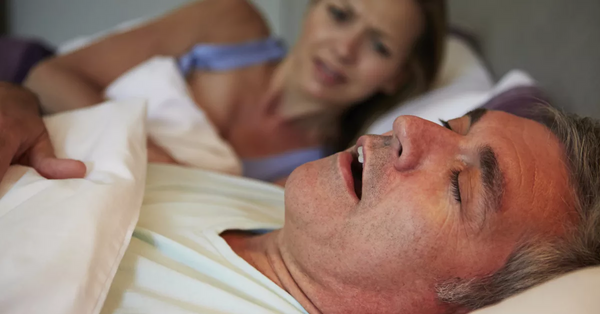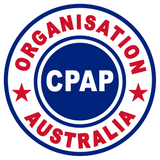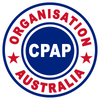Side effects of Sleep Apnea

There can be many reasons why patients either do not start CPAP therapy, or when using CPAP become discouraged when things don’t go well. The thought of sleep apnea masks, sleep apnea pillows, and machines can be a daunting one; some patients may have mask problems, or their trial of CPAP does not go well. Some patients may put off starting CPAP, concerned about spousal disapproval or are worried about what the mask or the air flow feels like. Sometimes patients simply feel that there is no benefit to using CPAP therapy or may have the barrier of claustrophobia or a panic disorder looming over them. All of these are understandable however, sleep apnea is a very serious illness and has very poor health outcomes if left untreated.
Fatigue and snoring are only the tip of the iceberg when it comes to sleep apnea. Even though the collapse of the airway, the drop in oxygen levels, fragmented sleep and repeated waking during the night is evident after a sleep study, patients may still decide to put up with the sleepiness, however there are many more serious reasons to persevere with the therapy. Patients may experience, or already experience physical, psychological and cognitive implications, or problems affecting your interpersonal relationships with family and friends.
Physical Effects
Not only is fatigue dangerous for obvious reasons such as driving and operating other heavy machinery, but your body systems are suffering too. Your heart and blood vessels are under stress, and untreated sleep apnea is linked to coronary heart disease, heart failure, stroke, atrial fibrillation (Drager et al, 2017 & Luyster et al, 2014), and high blood pressure, (Robbins et al, 2018). Sleep apnea has also been linked diabetes and poor glucose regulation (Pandey et al, 2011). Weight gain can also become a problem, as well as hormone imbalance and ineffective hormone production. Hormones are regulated during the four stages of sleep, and sleep apnea interrupts these stages and their mechanisms. It is therefore important for patients to understand that while initially they cannot feel the effects of sleep apnea, over time it can have very serious implications for their health.
Psychological and Cognitive Affects
Often patients with sleep apnea may also suffer with depression and anxiety. Kaufmann, (2017) found that when compared to patients without sleep apnea, those with sleep apnea were more likely to suffer with depression, suicidal thoughts, anxiety and other psychological stress factors.
Sleep apnea will impact focus and attention and cause problems at work and at school, and in turn it affects the ability to learn, impacting memory (Krysta, 2017). It is thought that particular stages of sleep can assist with committing facts from short term, to long term memory. Again, sleep apnea interrupts these stages of sleep, preventing their full benefit.
Interpersonal Problems
Snoring is perhaps the biggest of the interpersonal problems that may occur for sufferers of sleep apnea. Often snoring disturbs their bed partners and can be so loud that they may sleep in another room of the house. Snoring is often considered normal, and not very life threatening, however it is an indication of the narrowing of the airway, as tissue in the throat falls inwards and vibrates. It is important to remember that for a patient to have sleep apnea, the airway does not have to be completely blocked for a drop in oxygen to occur, and a disruption to sleep and the body systems. Adequate CPAP therapy, if working well, can bring harmony back to the bedroom, and allow patients to feel more comfortable, and make CPAP therapy more enjoyable.
The most important thing to remember is that while CPAP therapy can be difficult to begin with, the benefits far outweigh the cost to your health. Perseverance and practice, as well as choosing the right mask (insert link to previous CPAP mask article), cleaning your machine and mask regularly, fixing mask and mouth leaks and accepting all the help available to you from sleep practitioners will keep you on track. If possible, seek the support of partners or spouses, and family because their help will assist with usage, acceptance and ease of therapy.
Make your health a priority!
Citations
Drager, L.F, McEvoy, R.D, Barbe, F, Lorenzi-Filho, G, & Redline, S. Sleep Apnea and Cardiovascular Disease: Lessons from Recent Trials and Need for Team Science. Circulation. 2017 Nov 7; 136(19): 1840–1850. doi: [10.1161/CIRCULATIONAHA.117.029400] PMCID: PMC5689452 NIHMSID: NIHMS910791 PMID: 29109195
Kaufmann, C. N, Susukida, R, & Depp, C. A. Sleep apnea, psychopathology, and mental health care. Sleep Health. 2017 Aug; 3(4): 244–249. Published online 2017 May 26. doi: [10.1016/j.sleh.2017.04.003] PMCID: PMC5560422 NIHMSID: NIHMS880150 PMID: 28709510
Krysta, K, Bratek, A, Zawada, K, & Stepańczak, R. Cognitive deficits in adults with obstructive sleep apnea compared to children and adolescents J Neural Transm (Vienna). 2017; 124(Suppl 1): 187–201. Published online 2016 Jan 4. doi: [10.1007/s00702-015-1501-6] PMCID: PMC5281652 PMID: 26729362
Luyster, F.S, Kip, K.E, Buysse, D.J, Aiyer, A.N, Reis, S.E, & Strollo, P. J. Traditional and Nontraditional Cardiovascular Risk Factors in Comorbid Insomnia and Sleep Apnea. Sleep. 2014 Mar 1; 37(3): 593–600. Published online 2014 Mar 1. doi: [10.5665/sleep.3506] PMCID: PMC3920326 PMID: 24587583
Pandey, A, Demede, M, Zizi, F, Abo Al Haija’a, O, Jean-Louis, G, & McFarlane, S. I. Sleep Apnea and Diabetes: Insights into Emerging Evidence. Curr Diab Rep. 2011 Feb; 11(1): 35–40. doi: [10.1007/s11892-010-0164-9] PMCID: PMC4224959 NIHMSID: NIHMS562300 PMID: 21069483
Robbins, R, Seixas, A, Jean-Louis, G, Parthasarathy, S, Rapoport, D.M, Ogedegbe, G, & Ladapo, J. A. National patterns of physician management of sleep apnea and treatment among patients with hypertension. PLoS One. 2018; 13(5): e0196981.Published online 2018 May 23. doi: [10.1371/journal.pone.0196981]PMCID: PMC5965818PMID: 29791455

